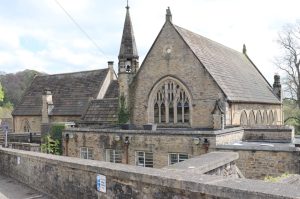Tribunal rules redundant MacFarlane Transport staff to get pay out

FORMER employees of haulage firm Macfarlane Transport, which collapsed in July, have been told that they qualify for compensation from the Redundancy Fund.
The Leeds-based firm laid off 270 workers from its depot in Leeds and elsewhere after going into administration in a manner described as “diabolical” by staff.
Eleven employees, mostly members of the UK’s biggest Trades Union Unite, took their case to the Leeds Employment Tribunal, alleging the firm had given no indication they would enter into administration and failed to consult with employees prior to the redundancies.
The tribunal before Judge Cox directed that employees dismissed as redundant on July 3 be paid for a 90-day period from that date, meaning the award applies to all employees made redundant on that day.
Solicitor Toni Haynes of Morrish & Co, who represented the employees, said:”Macfarlane was legally obliged to consult with employee representatives 90 days before the dismissals.
“Because they failed to do that, and also failed to hold elections to nominate representatives, we brought a claim at the Employment Tribunal for a Protective Award.
He continued: “The company is in administration, so any payment from them is unlikely. However the employees potentially qualify for payment from the Redundancy Fund, which is a government scheme set up to protect people from this kind of situation.”
Hailing the ruling, HGV driver Christopher Cornock of Castleford said: “I’m very relieved that it went our way, for once.
George Senior, another driver made redundant along with his forklift driver son, recalled: “I went to work on a Wednesday at my usual 6 o’clock start. They made us wait for half an hour, and then told us all to go home.
“I’d been with Macs for six years, and my son had been there five years. I think any of the lads who worked for Macfarlane, hearing about our win, should put a claim in for it. What Macfarlane Transport did was diabolical. There was no need to go into receivership the way they did, treating the employees that way.”
Richard Bedford, Unite regional industrial organiser, said that the Redundancy Fund acted as a safety net for people whose layoffs have not been handled properly. But the fund,which comes from taxpayer’s money, has its limits.
“Macfarlane should have done the decent thing and consulted with the representatives, paid their employees 100% of this money, and not left it to the taxpayer to clean up after them.”
“In these tough economic times, a lot of people up and down the country are going to find themselves in similar situations as our members who brought this case. They need to know their rights.”
Prior to its collapse Macfarlane had 120 trucks carrying the company’s familiar green and yellow livery and almost 200 trailers.
Competitive market conditions, which put the company’s “margins under unsustainable pressure”, where blamed for the collapse in trading.
Two years ago it was saved from administration after businessman Stephen Cooke stepped in to buy the company.
The company, based on a 15-acre site at Thornes Farm Business Park, was founded by brothers Ian and Gordon Macfarlane in 1978. The pair sold it in a management buyout in 2004.
Richard Fleming and Brian Green of KPMG’s restructuring practice in Leeds were appointed joint administrators.







